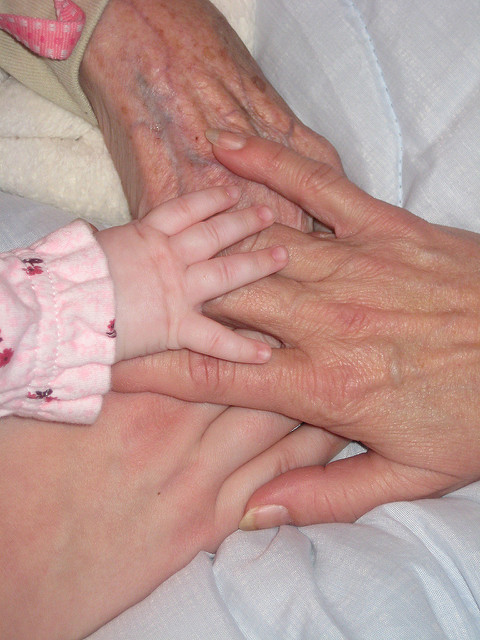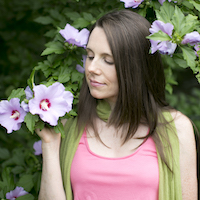Abuse is a heavy word.
With it come bruises and scars—and they don’t have to be visible to the external eye.
We all have bruises and scars. We’ve all been abused. Maybe your abuse didn’t happen in the traditional way; maybe it was subtle and passive. Maybe it happened in whispers and teases that didn’t seem so extreme.
It’s sad that we live in a culture where countless non-profit agencies offer counseling support to children and adults in need of protection—abused physically, sexually, emotionally or born with chemical addictions—yet addictions run rampant.
What’s most sad is that this is happening everywhere—including our own minds.
What I’m proposing here is a peeling away of layers of years upon years of ill treatment that may have been started by others in our lives—either treating us poorly or treating each other poorly. Children are sponges. They soak in what they see, hear and feel. When a child experiences joy, they emanate that joy tenfold. When a child witnesses pain or experiences ill treatment first hand, they store that in their cells. It creates an impression, and will manifest in some form at some point.
What I’m writing about feels heavy, but in these words there is light. In between the weightier words there is a peace. In the midst of pain there is a presence that is pure.
We are all abusive—not to others, but to ourselves. Just pay attention to your mind on a daily basis, even for five minutes. What are your thoughts like? How many are loving and positive? How many are negative, judgmental and critical? How many are neutral? And the thoughts match our feelings; in a day, we can experience endless waves of ups and downs, goods, bads and in betweens.
I understand abuse first-hand.
I was raised by an alcoholic mother. When she went into recovery when I was seven, the physical abuse stopped for the most part, but the emotional abuse continued. And until I experienced my first romantic relationship, I didn’t realize how fearful I was of this abuse that I’d stored and not properly processed for so long.
Relationships can bring out our dark sides just as much as they do our light. The yogis say that relationship is one of the higher forms of yoga, because there is a giving up of self in order to be with another.
I first experienced my dark side when I broke up with my boyfriend. I was 23. I had never experienced ranges of emotions—jealousy, anger, fear—like I had in my first serious relationship. I felt like fleeing was the safest thing for me to do. I felt that running from it would maybe stop it or hide it. But I still had to learn not to fear my darkness. I realized it could not be stuffed into a corner and forgotten—it was begging to be acknowledged.
One of my yoga teachers said to me, “When you experience darkness, just shed light on it.” It was a revelation. That simple wisdom has saved me from the dark side of my mind many times.
Five years ago, stepping into motherhood, I also faced that fear of abuse. I wanted to end the cycle of emotional abuse that had been happening for generations in my family. (Next to relationship, parenthood is said to be the highest form of yoga—the ultimate giving up of personal ego to serve and nurture another.)
When I was a new mom, I suddenly felt a deep sense of forgiveness toward my own mother, knowing first-hand how difficult it was to stay patient and positive on very little sleep. I understood how a fuse could go short when one could not have even one moment alone all day. I also respected her desire to go into treatment for her addiction when I was a child and felt how intense the struggle must have been, trying to work on healing herself when she had three small children to care for.
As a new mom, I was pushed to the edge—emotionally, mentally and physically.
However, what I had that perhaps my own mother, grandmother and great-grandmother did not, was the wisdom of knowing the difference between the dark and the light.
I have my mom to thank for teaching me about self-healing. She wasn’t perfect, and I was hurt by her words many times as a child, but I also see now that she was hurting and just learning to care for herself properly, without abuse. Witnessing my mother focus on her own healing for over 20 years brought me to a greater awareness of my own need for healing my childhood abuse when I stepped into motherhood. My mother was often triggered because she did not give herself time for self-care, and this made her resentful, bitter and angry. She took this anger out on her children.
Self-care is self-love.
Sometimes, we learn what not to do. Children are wise. When they see an adult doing something that seems off-balance, they question it. I remember making mental notes many times as a child:
I’m not going to do that when I get older,
I’m going to be kind to myself.
Why can’t more adults be kind to themselves?
Why isn’t my mom kind to herself?
Part of this self-kindness is feeling our feelings!
We live in a world that is scared to feel. We are scared to feel, and so we stuff it down with food, drugs and alcohol. Over-indulgence in anything—even Netflix—is a denial of feeling. A form of escapism.
But, what are we really escaping?
If we start to feel, actually experience the anger or the pain or the sadness, we realize it isn’t going to last forever. In fact, it could be very, very temporary. We may just need a good cry or scream or hug.
What is it that we are so scared to feel?
This goes for men maybe even more than women. Many men are taught to be rocks, and (hopefully this is changing with my daughter’s generation and all the aware parents out there) are not encouraged to express their feelings as much as women. I’ve had a few male friends who were involved in men’s groups that helped to break down the “men can’t feel” myth.
Not feeling is a lie. Period. There is no justification to not feel your feelings.
Here are some ways to end the cycle of abuse that exists inside of you. These suggestions can help to heal past wounds and your own abusive inner voice.
This quote from Ghandi sums up the idea of abuse the best way I’ve heard:
“I will not let anyone walk in my mind with their dirty feet.”
Don’t sh*t on yourself. You deserve to be treated with the deepest respect.
Here are Some Ways to End the Cycle of Abuse in your Mind:
Feel your feelings.
Seems like a simple one, but this can be a bit of a Pandora’s Box for someone who has repressed for many years. Therapy is extremely helpful for this process, along with healing modalities like yoga or Reiki and the support of friends and family you feel safe with.
Self-care is of the utmost importance.
I tell my students, when you can fill your cup with good self-care, you then have energy to give to others. Treat yourself like you are the Dalai Lama—because you are that important! There is only one you, and you are a gift!
Forgive your past.
If you’ve experienced abuse by others, the process of forgiveness can take time. Start with the intention to heal your wounds. Stating an intention is a powerful way to begin the healing process. Once we put out to the Universe what we want, things begin to unfold in their own time. Trust in the process.
Acceptance.
I do believe we choose our parents and our life lessons for a reason. We are on this planet to grow, to learn, to remind each other of the one true purpose in this life: to love. We are truly meant to shine our lights, but without darkness, there would be no light. There is a beautiful movie called Cafe with Jennifer Love Hewitt (like her or not, it’s a well-written film) that illustrates this idea perfectly. Dark and light are symbiotic. How can we embrace both in a balanced way?
My intention for sharing this piece is to shed some light on the truth: everyone’s mind is in need of healing.
And I end with my favorite quote—from the Course in Miracles:
“There are no small upsets.”
We can’t judge another’s level of pain or discomfort. Someone can be just as upset by spilt milk as another is by being hit or degraded. Pain is pain. Don’t discount your own level of upset or compare it to another’s. Our world is full of tremendous suffering; that we know to be true. But to discount your sadness because you feel there are people much sadder than you? Well, that is a form of repression, denial and even self-degradation.
Express. Feel. Honor yourself.
All that you experience in your own mind, body and heart is to be respected.
Respect. Honor. Feel your feelings.
Please.
As we heal one heart at a time, we become lighter.
Let’s soar.
~
Relephant Read:
How to End Negative Self-Talk in 3 steps & Rewrite the Story of your life.
~
Author: Sarah T. Lamb
Volunteer Editor: Kim Haas / Editor: Toby Israel
Image: Eric Danley/Flickr // Jairo Alzate/Unsplash
~



Read 2 comments and reply